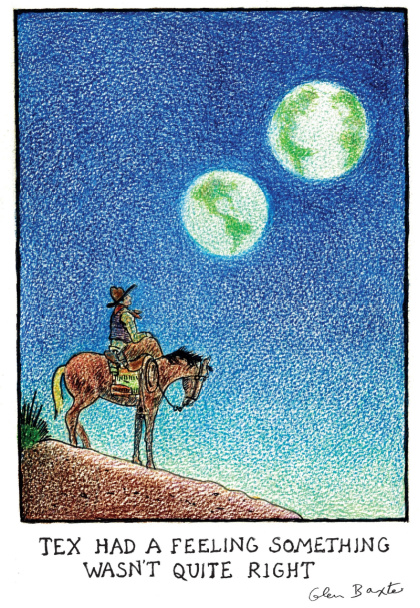 |
| Voting and The Jewish Question |
Well ... the actual blurb was
tradition that speak explicitly about voting, and there are
other sources that address the topic indirectly.
We'll explore some of these texts to see
how attitudes have evolved.
דף נט,ב גמרא וזה הוא תנור של עכנאי מאי עכנאי אמר רב יהודה אמר שמואל שהקיפו דברים כעכנא זו וטמאוהו תנא באותו היום השיב רבי אליעזר כל תשובות שבעולם ולא קיבלו הימנו אמר להם אם הלכה כמותי חרוב זה יוכיח נעקר חרוב ממקומו מאה אמה ואמרי לה ארבע מאות אמה אמרו לו אין מביאין ראיה מן החרוב חזר ואמר להם אם הלכה כמותי אמת המים יוכיחו חזרו אמת המים לאחוריהם אמרו לו אין מביאין ראיה מאמת המים חזר ואמר להם אם הלכה כמותי כותלי בית המדרש יוכיחו הטו כותלי בית המדרש ליפול גער בהם רבי יהושע אמר להם אם תלמידי חכמים מנצחים זה את זה בהלכה אתם מה טיבכם לא נפלו מפני כבודו של רבי יהושע ולא זקפו מפני כבודו של ר"א ועדיין מטין ועומדין חזר ואמר להם אם הלכה כמותי מן השמים יוכיחו יצאתה בת קול ואמרה מה לכם אצל ר"א שהלכה כמותו בכ"מ עמד רבי יהושע על רגליו ואמר לא בשמים היא מאי (דברים ל) לא בשמים היא אמר רבי ירמיה שכבר נתנה תורה מהר סיני אין אנו משגיחין בבת קול שכבר כתבת בהר סיני בתורה (שמות כג) אחרי רבים להטות אשכחיה רבי נתן לאליהו א"ל מאי עביד קוב"ה בההיא שעתא א"ל קא חייך ואמר נצחוני בני נצחוני בני
[of clay, placing one upon another],
then put sand between each of the coils — such an oven,
R. Eliezer declared, is not susceptible to defilement,
while the sages declared it susceptible.
It is taught: On that day R. Eliezer brought forward every imaginable argument, but the Sages did not accept any of them. Finally he said to them: "If the Halakhah (religious law) is in accordance with me, let this carob tree prove it!" Sure enough the carob tree immediately uprooted itself and moved one hundred cubits, and some say 400 cubits, from its place. "No proof can be brought from a carob tree," they retorted.
And again he said to them "If the Halakhah agrees with me, let the channel of water prove it!" Sure enough, the channel of water flowed backward. "No proof can be brought from a channel of water," they rejoined.Here is the clincher (aka the prooftext):
Again he urged, "If the Halakhah agrees with me, let the walls of the house of study prove it!" Sure enough, the walls tilted as if to fall. But R. Joshua, rebuked the walls, saying, "When disciples of the wise are engaged in a halakhic dispute, what right have you to interfere?" Hence in deference to R. Joshua they did not fall and in deference to R. Eliezer they did not resume their upright position; they are still standing aslant.
Again R. Eliezer then said to the Sages, "If the Halakhah agrees with me, let it be proved from heaven." Sure enough, a divine voice cried out, "Why do you dispute with R. Eliezer, with whom the Halakhah always agrees?"
R. Joshua stood up and protested: "The Torah is not in heaven!" (Deut. 30:12).
We pay no attention to a divine voice because long ago at Mount Sinai You wrote in your Torah at Mount Sinai, `After the majority must one incline'. (Ex. 23:2)"And how did The Holy One, Blessed Be He, react to this Rabbinic process?
R. Nathan met [the prophet] Elijah and asked him, "What did the Holy One do at that moment?" Elijah: "He laughed [with joy], saying, 'My children have defeated Me, My children have defeated Me.'"For more years than he cares to count, Abq Jew has accepted the Exodus prooftext at face value. After all, the Rabbis in the Talmud surely knew the Biblical text. And the Rabbis who compiled the Talmud surely knew the Biblical text. Didn't they?
Moreover, we've had at least 1500 years to check the quote's accuracy - and Abq Jew (not that he is in any way an authority) has never heard a complaint. And in the story - G-d Himself accepts the prooftext!
Nevertheless - after using his own Abq Jewish Online Learning page to capture the Hebrew text of our sugya, Abq Jew went Googling. And he found a fascinating article in the online Fortean Times, a monthly magazine of "news, reviews and research on strange phenomena and experiences, curiosities, prodigies and portents."
Abq Jew will leave it to you, his readers, to judge the worthiness of this interesting resource. But the article did ask (and answer) one question that Abq Jew had never asked: What does Exodus 23:2 actually say?
Here is the answer:
Thou shalt not follow a multitude to do evil; neither shalt thou bear witness in a cause to turn aside after a multitude to pervert justice;Wait a minute! The Biblical text says "Thou shalt not follow a multitude" - and Rabbi Joshua and the others purposely misquote that Biblical text to prove their point. A shanda! How has this violation of truth gone unnoticed (or at least unreported) these past centuries?
And here we have the difference between Rabbanites, who interpret the Biblical text according to principles they themselves established, and Karaites, who read the Biblical text literally and do not interpret.
Abq Jew Note: Although there are still Karaite Jewish communities in the world - the Middle Ages were their heyday - most modern Judaism is Rabbinic, and most modern Jews are Rabbanites.Therefore: While the Rabbis flagrantly misquote the verse from Exodus - Abq Jew claims that we should think of them, rather, as jumping to the exegesis as they interpret the Biblical text, as Rashi points out:
And since it says: “You shall not follow the majority for evil,” I deduce that you shall follow them [the majority] for good. From here they [the Rabbis] deduced that in capital cases, we decide through [a majority of] one for an acquittal and through [a majority of] two for a conviction.Abq Jew believes that, far from being a shanda, The Oven of Achnai is a glorious example of Rabbinic legal activism at work.
BimBam's Eliana Light and Stu Sufrin (who created this video) write:
As we prepare for the fear and trepidation that - since 2016 - we may forever associate with Election Day, Rabbi Jack reminds us:Given the events that unfold after the initial debate is over, "Lo Bashamayim Hi" becomes more of a question than a statement—it's even unclear what side God's on.We decided to capture this uncertainty by telling the entire story with all its difficulties, and not giving away any easy answers. The length and wordiness of the text lent itself to a ballad, weaving narration and dialogue through one voice with a medieval- traveling minstrel feel.The characters engage with the story through a full range of emotions, expressing the passion and exasperation that arise because of this debate. The music itself dips and swells, becoming the argument, the mourning rabbis, and the turbulent sea.There is so much action and so many questions in this story that it is a microcosm of the Talmud itself; loud, messy, without a clear end or beginning, and raising more questions than answers. We hope our film does the same.Yes, when we think about The Oven of Achnai, and the Rabbis, and how the Rabbis of the Talmud interpreted the Law, this is the quote that we all love.Although Abq Jew also has a fondness for this one, particularly when he considers his children and their accomplishments.
The continuation of the Talmudic story is almost never cited, but if you look it up, you'll see it doesn't end well.
Perhaps that was the recognition of the rabbis that although we need to make decisions, and siding with the majority is a reasonable way to do so, there is definitely a price to pay.
The minority opinion might actually be the right one, which is exactly what Exodus 23:2 was originally supposed to mean.
























































